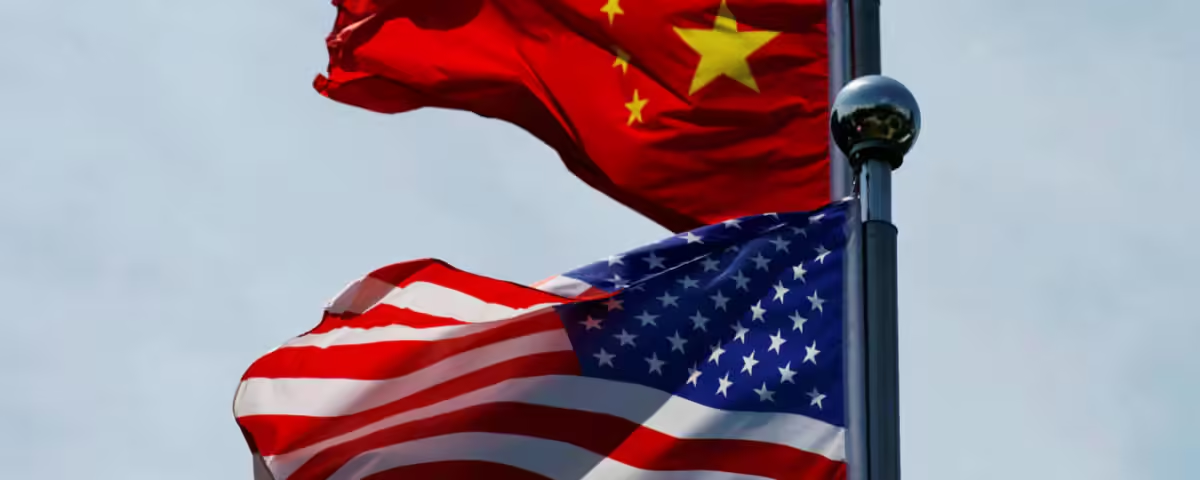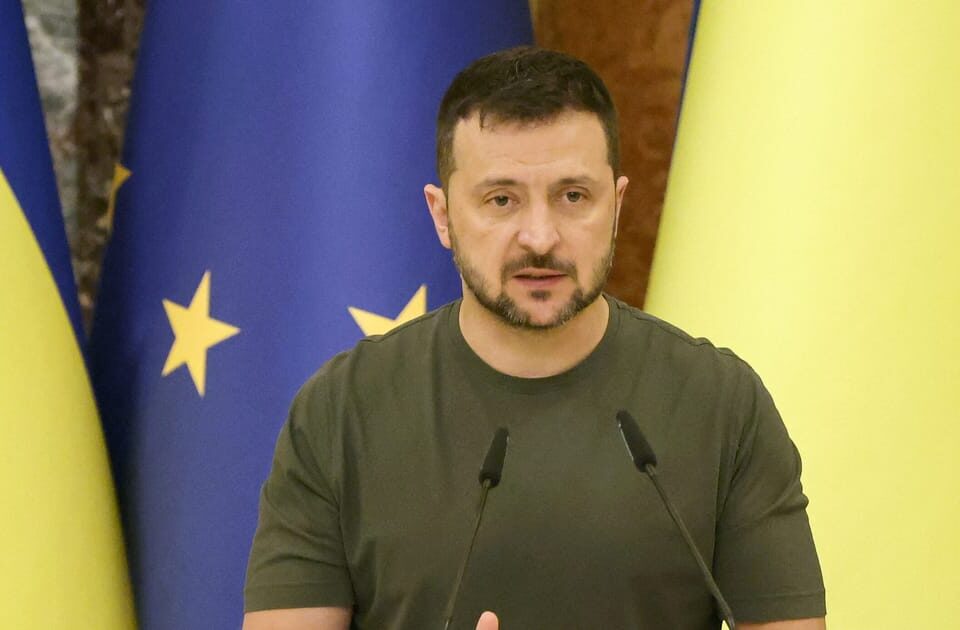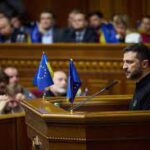
Zelensky Unveils ‘Victory Plan’ to Ukrainian Parliament
October 18, 2024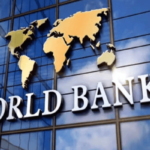
World Bank Calls on Nigeria to Audit NNPC for Greater Oil Revenue Transparency and to Maintain Economic Reforms
October 18, 2024China has strengthened its relationship with Russia since the invasion of Ukraine, US Issues First Sanctions on Chinese Firms.
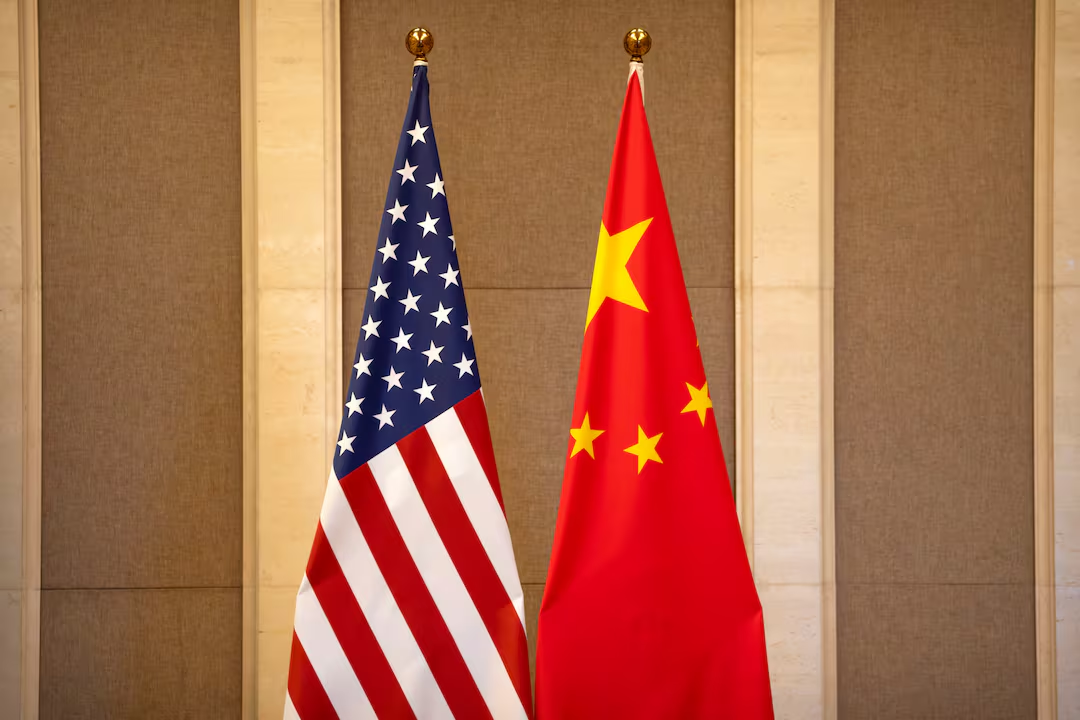
The United States has sanctioned two Chinese companies accused of supporting Russia’s war in Ukraine by providing aerial drones. In a statement, the US Treasury Department identified Xiamen Limbach Aircraft Engine Co and Redlepus Vector Industry Shenzhen Co as key players in the production and shipment of drone technology used by Russian forces. These drones, including the Garpiya long-range model, have been deployed by Russia to target critical infrastructure in Ukraine, causing significant damage and mass casualties.
In addition to the Chinese companies, the US Treasury also sanctioned a Russian firm and its owner, Artem Yamshchikov, who has allegedly acted as an intermediary between these Chinese suppliers and a Russian state-owned weapons company. As a result of the sanctions, all properties and assets held by the individuals and entities under US jurisdiction have been seized. The sanctions reflect the US government’s ongoing efforts to curb Russia’s access to foreign technology and expertise needed to sustain its military operations in Ukraine.
The sanctions were announced shortly after Ukrainian President Volodymyr Zelensky delivered a speech to the EU Council, during which he presented his “victory plan” and highlighted the role of foreign nations in supporting Russia’s war efforts. Zelensky revealed that Ukraine’s intelligence had found that “China is still actively helping Russia drag out this war.” He also accused Iran and North Korea of providing military assistance to Russia, further complicating the conflict.
US officials expressed deep concern over the increasing reliance of Russia on foreign technology to maintain its drone and missile programs. According to US State Department spokesman Matthew Miller, the suicide drones supplied by the sanctioned companies have been used to destroy critical Ukrainian infrastructure and have resulted in significant civilian casualties. Thousands of these drones have reportedly been produced since last year, according to a Reuters report.
Bradley Smith, a senior US Treasury official, emphasized the importance of sanctions in disrupting Russia’s ability to sustain its war effort. “Russia increasingly relies on the expertise of foreign professionals and the import of sophisticated technologies to sustain its weapons program,” Smith said, underscoring the strategic importance of targeting such supply chains.
In his address to the EU Council, Zelensky urged European leaders to maintain and even intensify the sanctions against Russia. He warned that easing the pressure on Moscow would only embolden Russian President Vladimir Putin to continue his aggressive actions. Zelensky stressed that continued military pressure on Russia, combined with robust support for Ukrainian forces, was essential to achieving a just and lasting peace.
Zelensky reiterated that Ukraine needs Western-supplied long-range missiles to strike deep into Russian territory, specifically targeting military bases from which Russia launches airstrikes against Ukraine. So far, Ukraine’s allies, including the US and UK, have refrained from allowing their long-range weapons to be used on Russian soil, citing concerns about further escalating the conflict. However, Zelensky argued that such strikes are necessary for Ukraine’s self-defense and to force Russia into meaningful peace negotiations.
“We propose placing on Ukrainian land a deterrence package that would either force Russia to participate in real peace negotiations or allow for the destruction of their military targets,” Zelensky told the EU Council. He framed his proposal as a “peace through strength” strategy, urging that Putin should respect Ukraine’s power rather than relying on threats to intimidate the world.
Zelensky also pointed to recent Ukrainian military operations, such as the surprise offensive in Russia’s Kursk region, as evidence that applying pressure on Russia can yield results. He argued that Ukraine must continue these operations to prevent the creation of Russian-controlled “buffer zones” within Ukraine, which could be used to solidify Russian territorial gains.
Another key element of Zelensky’s victory plan is securing a formal invitation for Ukraine to join NATO. While he acknowledged that immediate membership was unlikely, he argued that an invitation would strengthen Ukraine’s position in negotiations with Russia and send a powerful message of support from the West. “Russia has exploited the geopolitical uncertainty caused by Ukraine not being in NATO,” Zelensky said, calling for a decisive move from the alliance.
NATO’s new Secretary General, Mark Rutte, responded positively to Zelensky’s speech, describing the plan as a “strong signal” from Kyiv. However, Rutte stopped short of fully endorsing immediate NATO membership for Ukraine, instead suggesting that it would happen “in the future.”
Following Zelensky’s remarks, European Council President Charles Michel echoed the urgency of providing additional military and financial support to Ukraine. He stressed that continued assistance is crucial to Ukraine’s efforts to defend itself and bring an end to the war, reinforcing the broader European commitment to supporting Ukraine in its struggle against Russian aggression.

